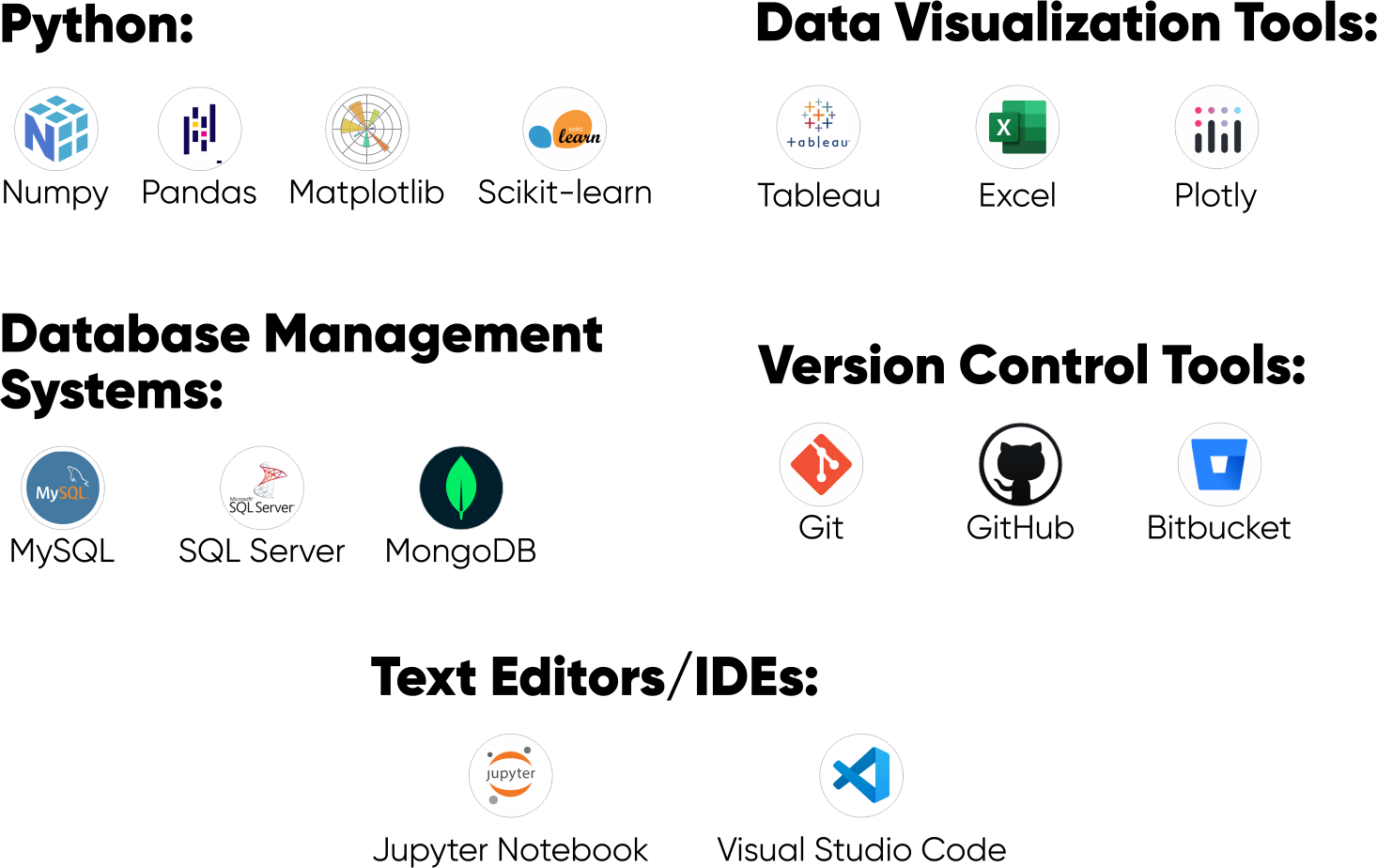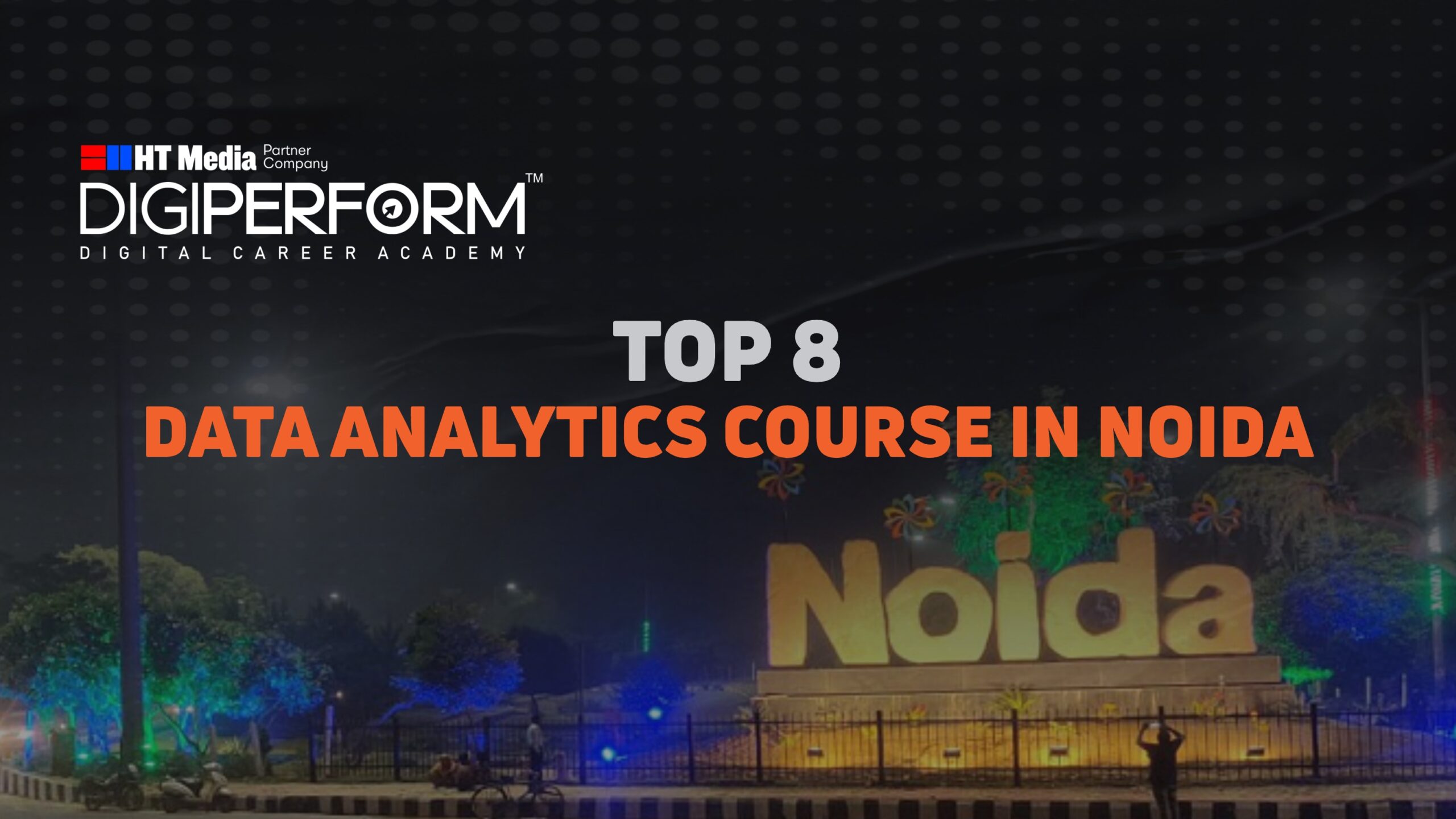Master
Data Science Courses
India’s Only Data Science Training Program created to help you to build a successful career in Data Science from scratch.
Follow 8 Steps and Become a Data Scientist
Data Scientist is an important and exciting career option in today’s digital age. They analyze data and can extract useful information and patterns. If you want to become a Data Scientist, then in this article we will tell you about 8 major principles by which you can become a Data Scientist. So let’s start.
Who is a Data Scientist?
A data scientist is an expert who specializes in analyzing and understanding data. This person makes inferences from data and uses various techniques to get more information from the data. Their job is to analyze data, model it, visualize it, and make inferences from it. Data scientists can work in a variety of fields, such as finance, health sciences, marketing, and other industries.
Data Science is a perfect career option in India. For this, annual income ranges from ₹ 500000 to ₹ 1500000. Many jobs are provided in the field of Data Science in India. You can apply for any job as per your qualifications.
What is the Role of a Data Scientist?
A data scientist is like a detective for information in the digital world. Data scientists use skills to gather and analyze big data, looking for hidden patterns and useful insights. Imagine them as super-smart detectives who solve mysteries in numbers and information instead of crimes. A data scientist’s main role is to help organizations make the best judgments.
For example, they might study shopping habits to suggest what products people might like or analyze health data to find ways to improve medicine. Data scientists are like friendly wizards who use computers to unlock secrets in data and make the world work better. They are like digital detectives, making sense of the information jungle to help businesses and improve our lives.
Technical skills for a Data Scientist?
To become a Data Scientist you should have the following technical skills. First off, coding languages especially Python and R. It’s like your super skills. Then, You should be able to search and extract data relevant to your company in large databases. You must be proficient in statistics and mathematics. You should know how to visualize data using tools like Tableau or Matplotlib. Machine learning is like your futuristic gadget—you use it to predict stuff.
In shorts:
- Python
- R
- Statistics and math
- SQL and NoSQL
- Data visualization
- Machine learning
- Deep learning
- Natural language processing
- Big data
- Cloud computing
8 Steps to Become a Data Scientist
Ready to become a data scientist? Not sure where to begin? Here are eight simple steps to start your journey from scratch.
Remember, the specific things you need might vary, but these are some common steps people talk about when becoming a data scientist:
Get to know data stuff like a pro:
As you become a data scientist, you’ll deal with big, complicated sets of information. To understand and share this info, you need to learn data wrangling. It’s like cleaning up, organizing, and changing raw data into a type you can understand and analyze.
When you want to show your data in a cool way, you need to be a champ at reporting and data visualization. There are awesome tools out there for this, like various data visualization tools. They give you different ways to show your data, depending on what you want to do. Get ready to be the superhero of data!
Get comfy with numbers and learn cool tricks:
Even if you don’t have a fancy degree, it’s important to know some math stuff for the data science journey. Think about learning things like calculus, which helps create smart algorithms for machines. But don’t worry too much – there are cool tools in Python and R that can do the math-heavy lifting for you.
Become a coding wizard:
To rock the data scientist world, you need to master some cool coding languages. The top picks are Python and R—they’re like magic wands because they’re super useful and everywhere. You’ll also want to be friends with SQL for working with databases—it’s not too tricky once you’ve got Python and R down.
Java is like a superhero language known for being fast and efficient. It’s great for data science, especially with big data tools like Hadoop and Spark. There are other languages to explore too, like Scala, C/C++, JavaScript, Swift, Go, MATLAB, and SAS. Get ready to be the coding hero of data science!
Get cozy with databases:
Remember SQL from earlier? It’s a big deal when you’re diving into databases. Think of databases like organized treasure chests for data scientists. They help store data neatly and speedily. SQL is like your trusty tool for handling and playing with structured data.
With SQL, you can do cool things like asking questions to databases, getting data ready for analysis, and even experimenting with it. Often, people use SQL alongside Python, and there are friendly helpers like SQLite, PostgreSQL, and MySQL that connect different data sources. So, if you want to be a data master, SQL is your go-to tool for database adventures!
Tackle big data like a pro:
Being a data scientist means dealing with mega-sized data sets—like, really huge ones. In a world where everyone and everything is making tons of data, these sets are getting gigantic. But guess what? Skilled data scientists can pull out awesome insights from these big data giants.
To be a superstar, learn to use cloud platforms like AWS, Microsoft Azure, and Google Cloud. They’re like your data playgrounds. Also, meet Apache Spark, a tool that helps process, analyze, and do machine learning with big data. If you want to be a big data whiz, check out our Digiperform online Data Science course—it covers the basics for handling and analyzing massive amounts of data. Get ready to conquer the big data world!
Practice and Connect with Data Friends:
To be a top-notch data scientist, you need practice and pals. Join communities, work on projects, and build up your skills. Try tools like DataCamp Workspace—it’s like a teamwork notebook in the cloud. You can analyze data, team up with others, and share your cool discoveries. It’s designed to take you from learning about data to actually doing data stuff. Start with built-in datasets and become a data whiz in no time.
Intern or Land a Job:
Once you feel like a data superhero with all the skills, apply them in the real world. Look for internships or jobs to show off your talents. Check out our guide on getting data science jobs for tips on standing out. Build a portfolio with your awesome projects and be ready for data scientist interviews.
Join the Data Community:
To stay in the loop as a data scientist, and connect with the awesome community. Follow cool people on LinkedIn, Twitter, Discord, and Reddit. Explore blogs, niche sites, and leaders in data science. Share your ideas, ask for advice, and dive into discussions.
Conclusion:
Starting a career as a data scientist can happen in different ways. While many begin with a bachelor’s degree in data science, computer science, or a related field, there are various paths to acquire the needed skills.
Moreover, a better way that you can choose to become a Data Scientist is by taking an online Data Science course from Digiperform.
DIGIPERFORM will help you make a career in the Data Science field, with an online Data science course (Master Certification Program in Analytics, Machine Learning, and AI). India’s Only Online Data Science Training Program.
After doing the Digiperform online Data Science course, you can apply for the Data Scientist post. And to get your dream job Digiperform’s dedicated placement cell will help you with 100% placement assistance.
FAQs:
What is a data scientist and what do they do?
A data scientist is a professional who analyzes and interprets complex data sets to inform business decision-making.
What skills are essential for a data scientist?
Data scientists need a blend of technical and soft skills. Technical skills include proficiency in programming languages. Soft skills like communication, critical thinking, and domain knowledge are also crucial for translating technical findings into actionable insights.
How does a data scientist differ from a data analyst?
While there is some overlap, each role has distinct responsibilities. Data scientists extract insights from data with the help of advanced analytics and machine learning. Data analysts primarily work with descriptive analytics, exploring and visualizing data to support business decisions.












